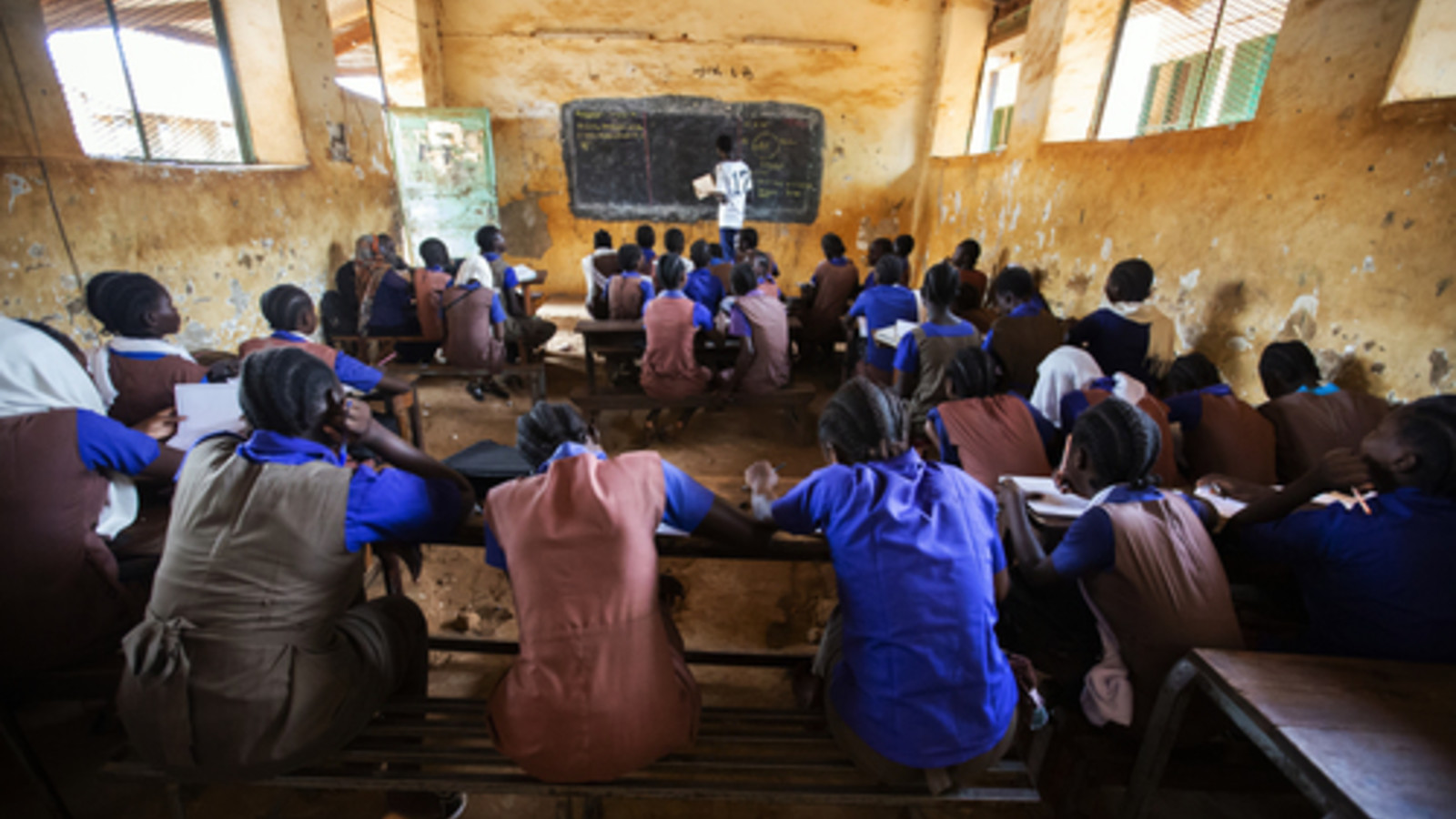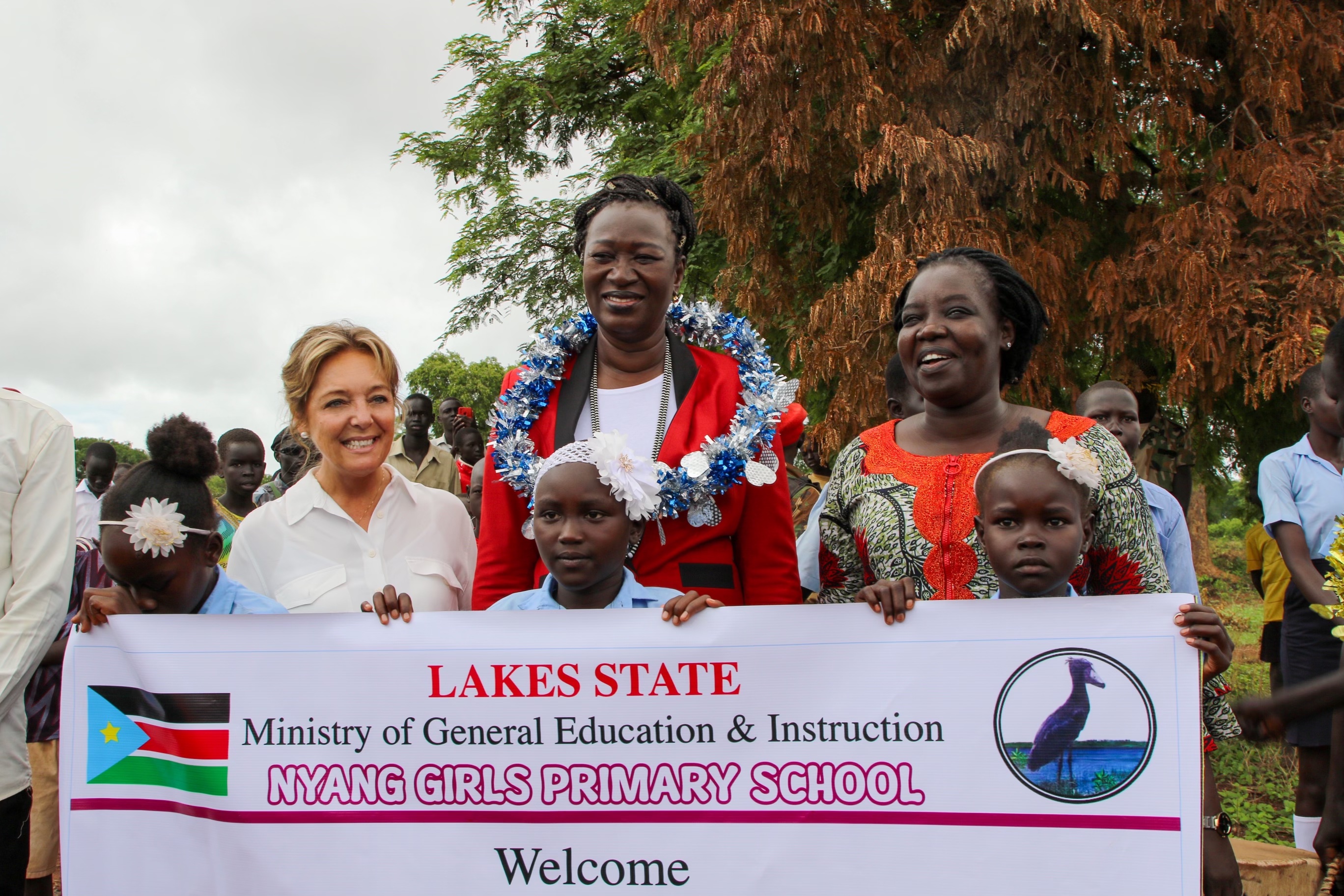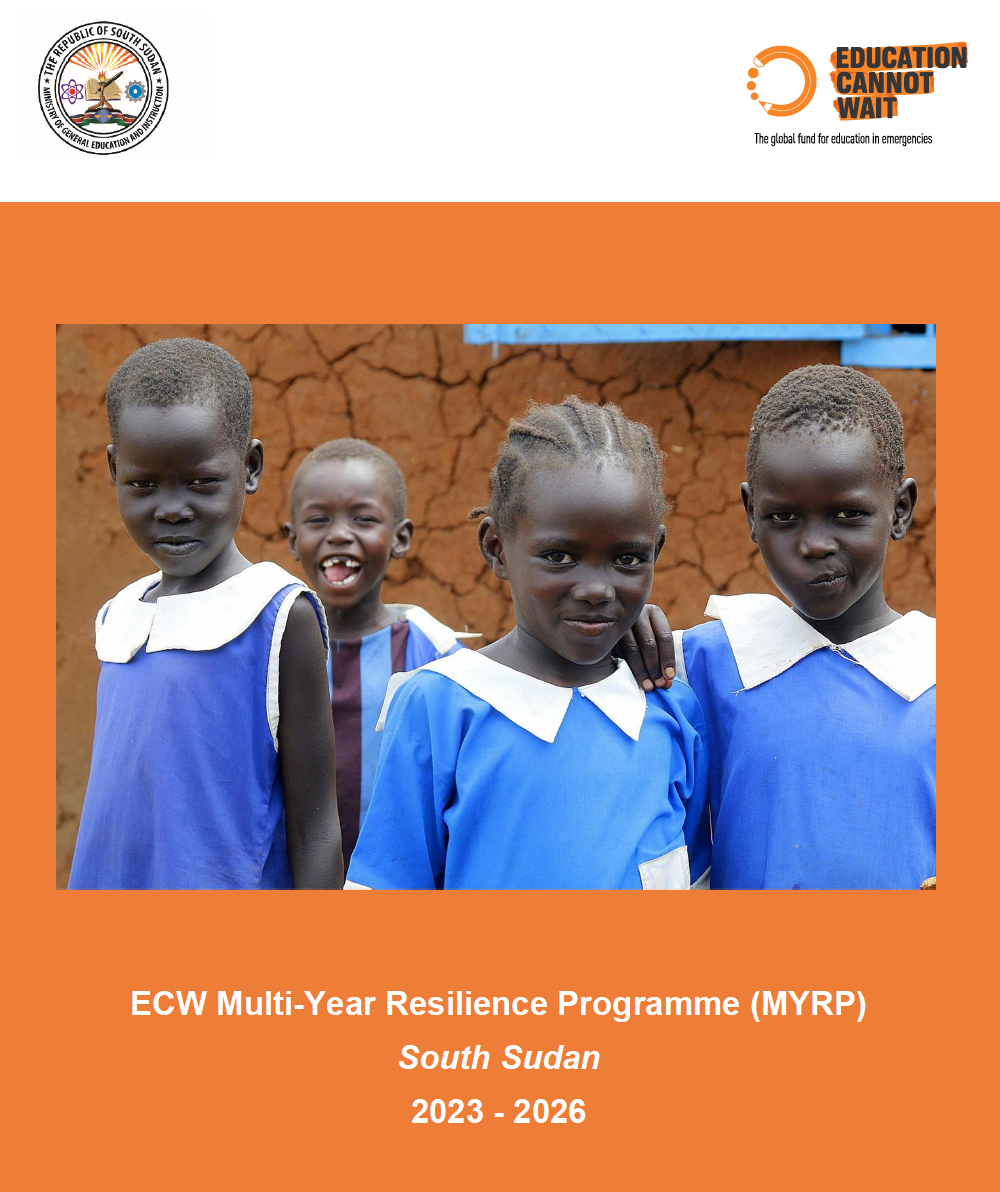ECW in South Sudan
In South Sudan, years of conflict have had a heavy toll on the education system. Violence and climate-induced disasters continue to hinder access to safe, quality education. Since 2020, Education Cannot Wait (ECW) has supported partners in improving access to quality inclusive education for children and adolescents and increasing retention rates. ECW’s funding focuses on the most vulnerable ones, including girls, internally displaced children, and children with disabilities. Interventions range from covering school fees, reaching students remotely, training education personnel, to implementing child protection pathways in schools.
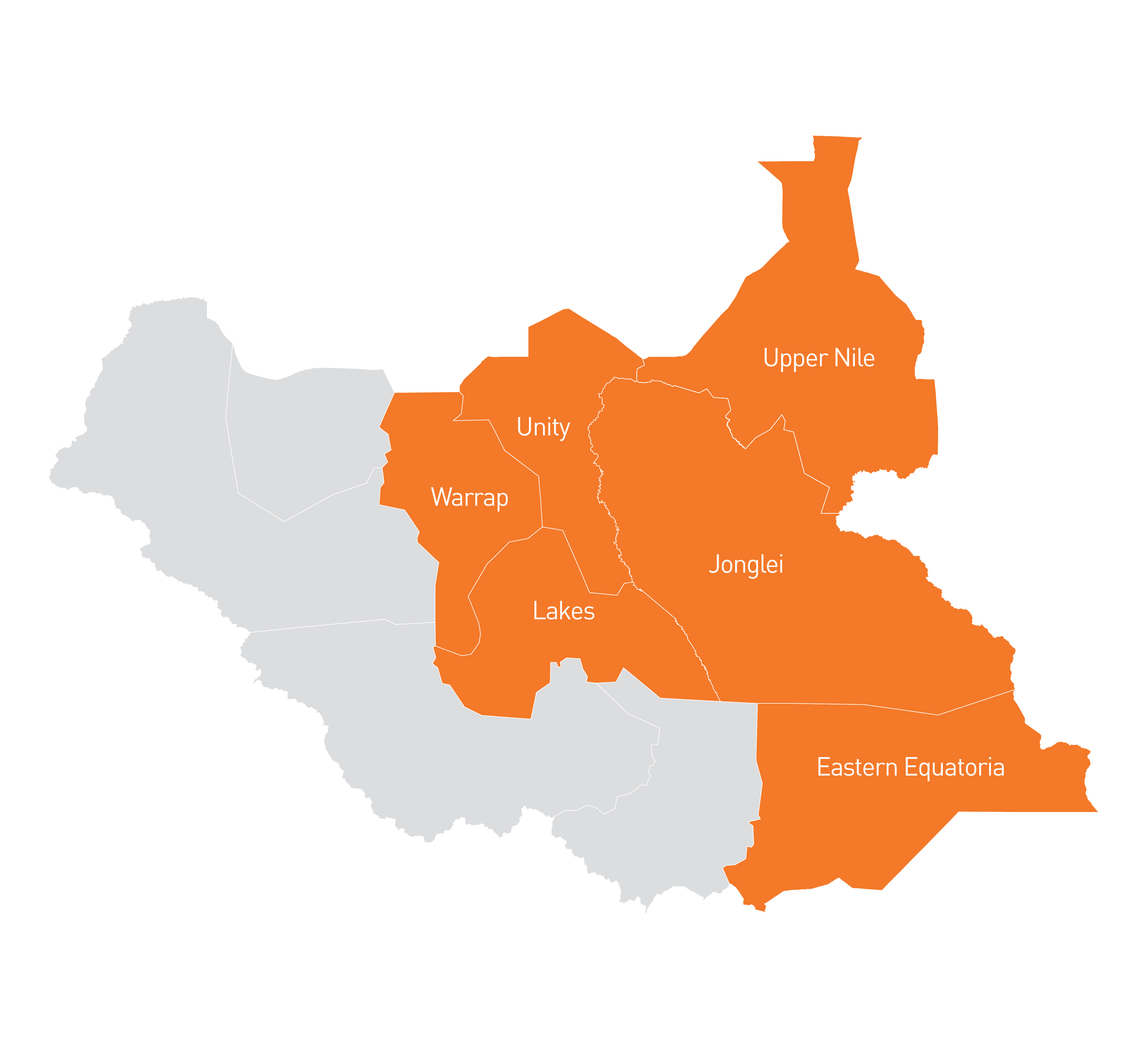
Investments
Financial Information
National Counterparts
Ministry of General Education and Instruction; Department of Development Partners’ Coordination, Directorate of Planning and Budgeting; National Consortium Unit
Results
Additional Results
- Number of adolescents girls receiving menstrual care kits, female hygiene kits or similar assistance: 16,702
- Number of teachers/administrators trained in subject knowledge, curriculum or pedagogy topics: 2,081
- Number of girls and boys receiving cash transfers for education: 1,981 (58% girls)
COVID-19 Results
Programme Info
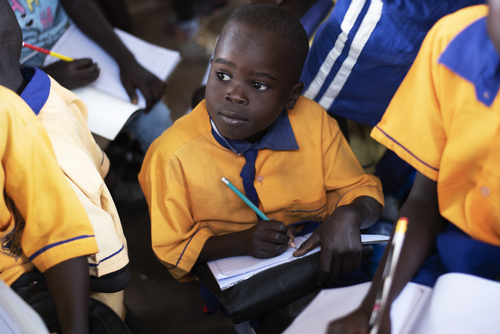
The country is also impacted by recurrent climate-induced disasters that exacerbate needs. In 2020, unprecedented floods led to significant displacement of communities and damaged essential infrastructure, including several schools.
Efforts to improve the provision of education in the country take place against this complex backdrop of political instability, a struggling economy, extreme poverty, food insecurity, climate extremes, and armed conflict, all of which have persisted for many years. The situation was further worsened by the COVID-19 pandemic, which resulted in a total lockdown of all schools.
Despite some progress made in recent years, South Sudan continues to have some of the lowest schooling coverage in the world. Vulnerable and marginalized children, such as girls, internally-displaced (IDP) children and children with disabilities are most at risk.
The Multi-Year Resilience Programme (MYRP) is grounded in the reality of South Sudan. Specifically, systemic change in the education sector is needed to drive results for all children, with a focus on girls and children with disabilities, while also supporting recovery and the return of refugees and IDPs and the transition from emergency to development.
The programme supports a holistic package of interventions, including school fees coverage; radio education; child protection; and campaigns to re-enrol those whose education was put on hold. Grantees work to improve the quality of education and train more women for teaching and leadership positions. Safe and protective learning environments are implemented so that girls, boys and children with disabilities maintain their fundamental right to an education.
Programme Components
- Building capacity. Education personnel are trained on leadership and inspection protocols. Numerous schools implement child protection pathways and safety audits are conducted on a consistent basis.
- Focusing on girls and children with disabilities. The programme constructs water, sanitation and hygiene (WASH) facilities with separate access for girls and boys and includes accessibility for children with disabilities. In addition, classrooms are fitted with disability ramps. Girls received menstrual hygiene management (MHM) kits and training.
- Improving quality of education. To improve education quality, education personnel are trained. Personnel are trained in ‘whole-of-child’ teaching and learning pedagogy; and in the use of student assessments and the development of appropriate and inclusive learning materials.
- Increasing access to education. Access to education is improved by covering children's school fees and reaching students remotely, through radio education. The programme offers enhanced learning for primary and secondary levels students. School and community leaders are engaging with children and youth, especially girls, who have dropped out of school to encourage them to re-enrol.
For more information on ECW's work in South Sudan, please contact Country Lead Maarten Barends (mbarends@unicef.org) and Programme Manager Eddie Dutton (rdutton@unicef.org).

